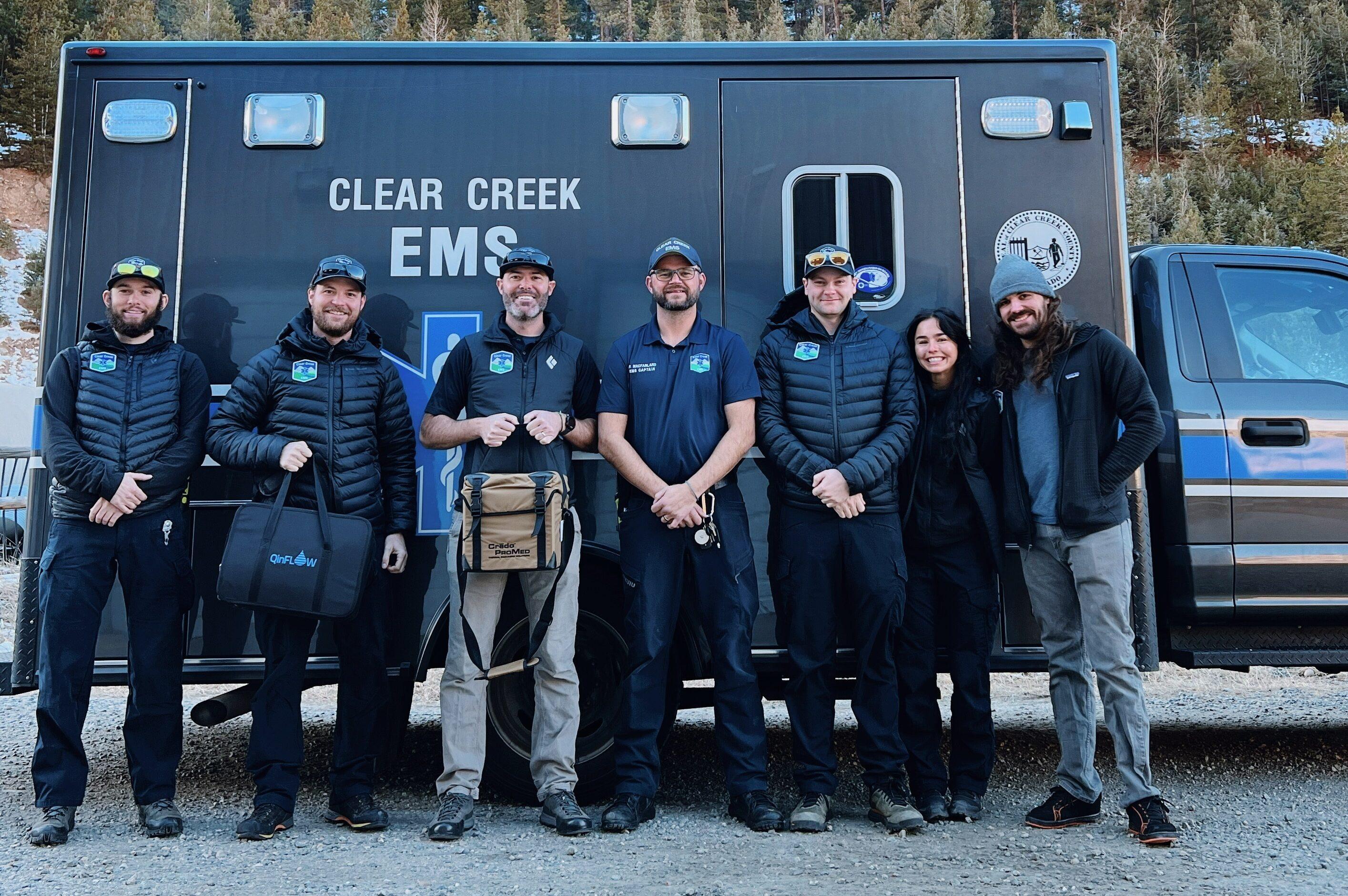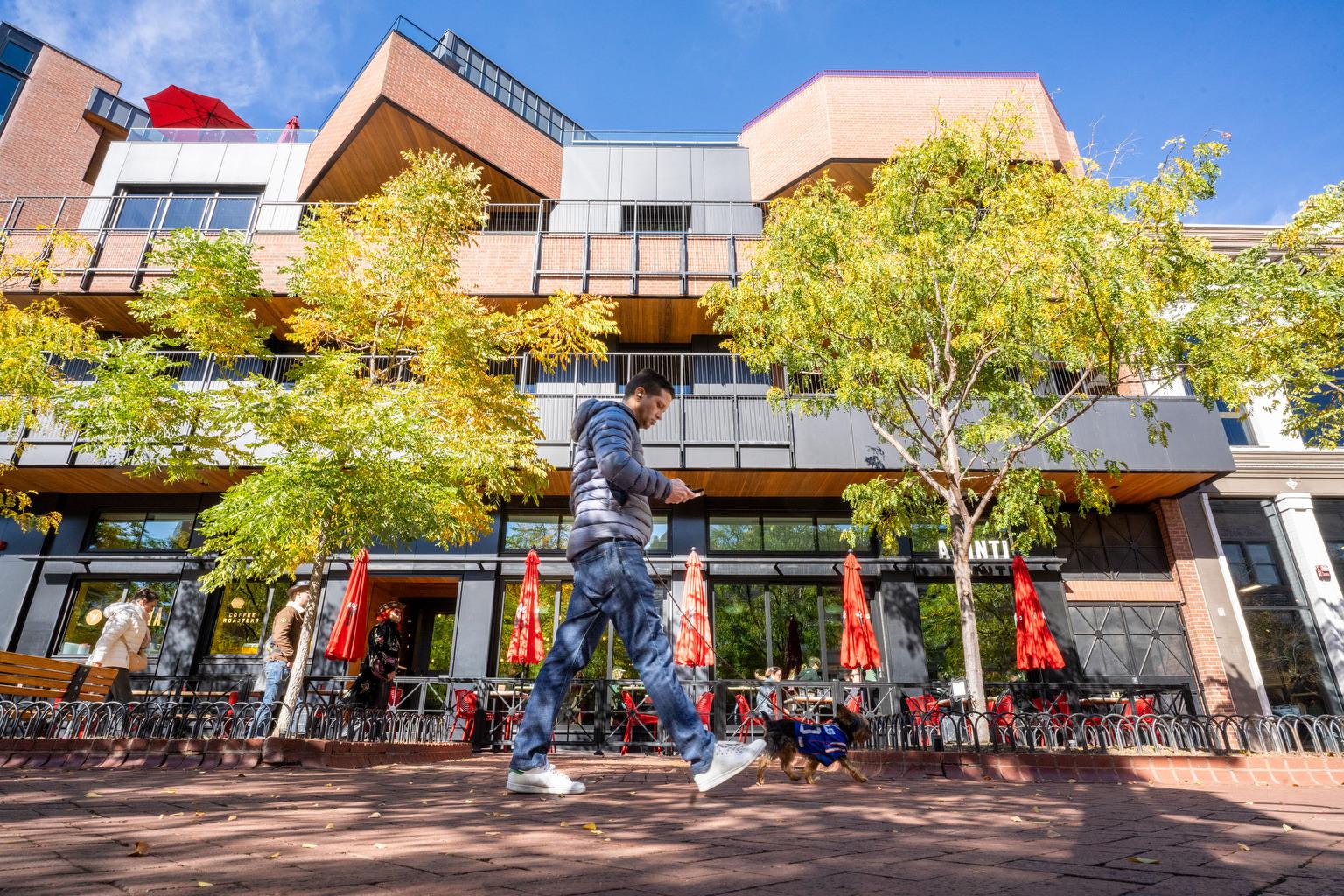In February, Chris Junior Anaekwe recruited a dozen teenage boys to help him shovel out trash from street gutters near a busy market in his hometown of Onitsha, Nigeria. As a result, people around the world praised him as a shining example to local youth. How is his campaign against trash going?
The gutters in the big market that Chris Junior Anaekwe helped clean up a few months ago are dirty again. Plastic bags full of rubbish, soda bottles and food containers float in the dark murky water.
It's why Anaekwe, 28, wants to start his own waste management company. After making global headlines for his cleanup efforts in his hometown of Onitsha in Anambra State, Nigeria, in February, he was inspired to write up a business plan. Now he's trying to get the company off the ground.
"I have noticed that sanitation is nobody's business — not even the government is serious about it," wrote Anaekwe in a WhatsApp message to NPR. "This is what needs to be done to help curb waste in my community."
Pollution is indeed a massive issue in Onitsha. A 2013 study in the African Journal of Environmental Science and Technology found high levels of arsenic, lead and mercury in the water as a result of unregulated runoff from trash dumps, raw sewage and toxic factory waste.
Anaekwe wants his company to provide waste management in the parts of Onitsha "ignored by government agencies," he says. He aims to employ 50 workers, purchase dump trucks, shovels and helmets, and build partnerships with composting and recycling plants.
Over the past couple of months, he has tried reaching out to government officials and investors for funding, to no avail. "Little attention has been paid to the proposal," he says. "But I will keep on pushing."
His former colleague Chimezie Anajama, who works at a nonprofit called Policy Alert in Uyo, Nigeria, says he isn't discouraged.
"Chris has big dreams," she says. "Due to the lack of adequate support, he is currently building a network of like-minded individuals [who care about] the environment."
On World Environment Day, June 5, he coordinated a cleanup event in Onitsha with the Justice, Peace and Development Commission, a local NGO managed by his church, the Cathedral Basilica of the Most Holy Trinity. Anaekwe says about 50 volunteers took part — and also marched to raise awareness of the city's pollution problem.
"He is quite focused," says Anajama. "He passionately cares, which is something that is fascinating because it is rare."
Anaekwe organizes impromptu cleanup events if he sees a place that is dirty. In spring, he noticed that the premises of the Cathedral Basilica were littered with trash. So he gathered about 20 young students coming out of a confirmation class to help him pick it up. He now organizes regular cleanups at the church.
At first, some of the kids refused to volunteer. "But you know how kids are," says Anaekwe. "If they see other kids helping, then the ones who said 'no' will start helping, too."
Anaekwe knows this isn't going to solve Onitsha's sanitation and pollution problem. But that's not the point.
"I want to make the people around me sensitive to their environment, especially the children and younger ones," he says. "As the adage goes, 'Catch them young.' "
9(MDEyMDcxNjYwMDEzNzc2MTQzNDNiY2I3ZA004))








